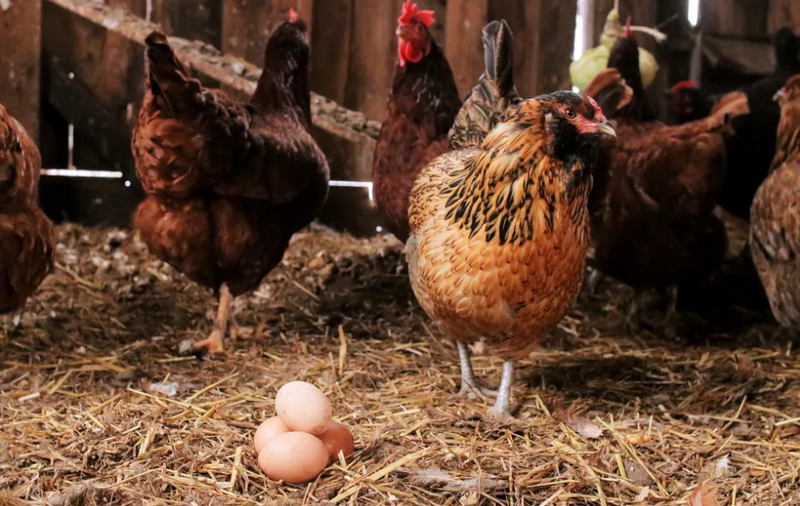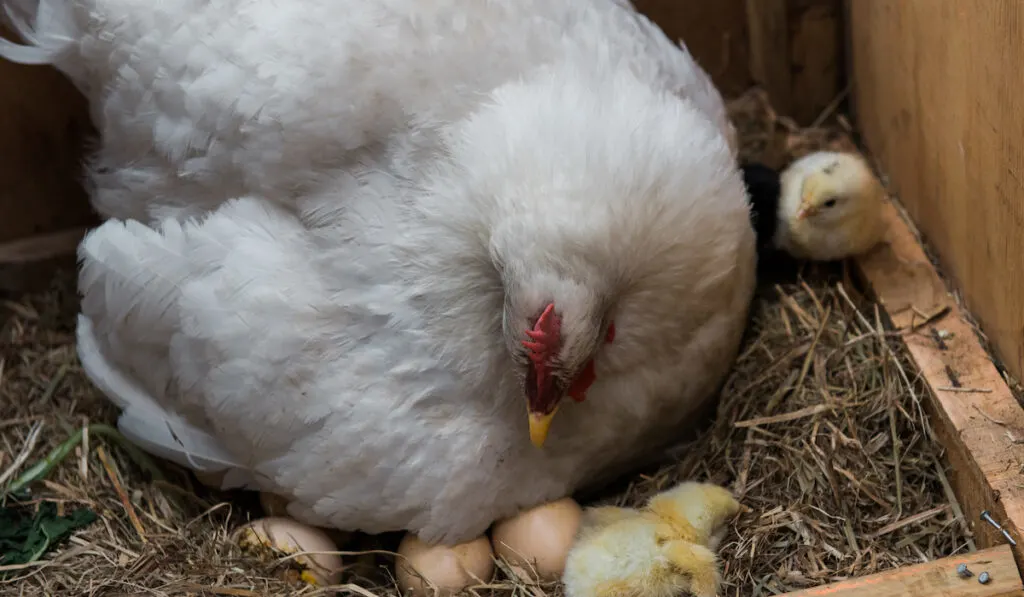Ever wondered if hens can lay eggs without a rooster around? Spoiler alert—they totally can! But hold up, there’s more to the story than just a simple yes or no answer. Whether you’re into backyard farming, curious about chicken biology, or just looking to impress your friends with some poultry trivia, this guide has got you covered. Let’s dive in and unravel the mystery of egg production without a rooster.
Picture this: You’re out in your backyard, tending to your little flock of hens, and suddenly you start wondering—do these ladies really need a rooster to keep laying eggs? The short answer is nope, they don’t. But let’s not stop there. There’s a whole world of science, biology, and even a little bit of poultry politics involved in this question. So, grab your favorite drink, and let’s break it down step by step.
This guide isn’t just about answering the question; it’s about giving you the full scoop on how hens produce eggs, why they do it, and what happens when a rooster enters the picture—or doesn’t. By the end of this, you’ll be an egg-laying expert, ready to take on any poultry-related conversation with confidence.
Read also:Minerva University A Paradigm Shift In Higher Education For 2025
Understanding the Basics of Egg Production
Alright, let’s start with the basics. Hens are natural-born egg producers. It’s kind of their thing. Even without a rooster, hens will lay eggs regularly as part of their natural biological cycle. Think of it like a clock inside their bodies—once it hits a certain point, boom, an egg pops out. But how exactly does this work?
Egg production is all about hormones. When a hen reaches sexual maturity (usually around 18-24 weeks), her body starts producing estrogen, which kicks off the egg-laying process. The ovary releases a yolk, which travels down the oviduct, picking up layers of albumen (egg white), membranes, and eventually, the shell. Voila! An egg is born.
Now, here’s the kicker: this process happens whether or not a rooster is around. A rooster doesn’t play any role in the actual formation of the egg. What he does do, though, is add a little extra to the mix—but more on that later.
Do Hens Need a Rooster to Lay Eggs?
Let’s get straight to the point: hens do not need a rooster to lay eggs. They’ll keep laying eggs like clockwork, whether there’s a rooster in the picture or not. In fact, most backyard chicken keepers opt for rooster-free flocks because, let’s be honest, roosters can be a handful. They’re noisy, territorial, and sometimes aggressive. Plus, if you’re just looking for fresh eggs, a rooster isn’t necessary.
However, if you’re planning to breed chickens, that’s where the rooster comes in. Without a rooster, the eggs your hens lay will be unfertilized, meaning they won’t develop into baby chicks. But if all you want is a steady supply of eggs for your breakfast, you’re good to go without one.
How Often Do Hens Lay Eggs?
So, how often can you expect your hens to lay eggs? Well, that depends on a few factors, like the breed, age, and overall health of the hen. On average, most hens will lay about 5-7 eggs per week during their peak laying years (usually the first 2-3 years of their lives). After that, their egg production naturally slows down.
Read also:From Boy Band Sensation To Solo Success Liam Paynes Remarkable Journey
Some breeds, like the White Leghorn, are known for their incredible egg-laying capabilities, cranking out an egg almost every single day. Other breeds, like the Orpington, might lay a bit less frequently but make up for it with larger, creamier eggs. It’s all about finding the right fit for your flock.
And hey, don’t forget about seasonal factors. Hens tend to lay more eggs during the warmer months when there’s plenty of daylight. In the winter, when the days get shorter, their egg production might slow down a bit. But don’t worry—this is totally normal and just part of their natural rhythm.
Factors Affecting Egg Production
Now that we know how often hens lay eggs, let’s talk about the factors that can affect their production. Nutrition, stress, and environment all play a big role in how many eggs your hens will lay. Here’s a quick rundown:
- Nutrition: Hens need a balanced diet rich in protein, calcium, and other essential nutrients to keep laying those eggs. Without proper nutrition, their egg production can drop significantly.
- Stress: Stress can throw a hen’s egg-laying cycle off balance. Loud noises, predators, or even a sudden change in routine can cause a drop in egg production.
- Environment: Hens thrive in a clean, comfortable environment. Make sure their coop is well-ventilated, free of pests, and has enough space for them to move around.
By keeping these factors in check, you can help ensure that your hens stay happy, healthy, and productive.
What Happens When a Rooster is Present?
Alright, let’s talk about the elephant—or should we say, the rooster—in the room. What happens when a rooster joins the flock? Well, the short answer is that things get a little more complicated. With a rooster around, the eggs your hens lay can potentially be fertilized, meaning they could develop into baby chicks.
But here’s the thing: not all eggs laid by hens with roosters are fertilized. It depends on whether the rooster has mated with the hen and whether the timing lines up with the egg-laying process. Even with a rooster in the mix, most of the eggs your hens lay will still be unfertilized. And if you’re not planning to hatch chicks, these fertilized eggs won’t make much of a difference to you.
On the flip side, having a rooster around can bring some benefits. Roosters are natural protectors, keeping an eye out for predators and sounding the alarm when danger is near. They also help maintain order in the flock, establishing a pecking order that can reduce stress among the hens.
The Pros and Cons of Having a Rooster
Still on the fence about whether to add a rooster to your flock? Here’s a quick breakdown of the pros and cons:
- Pros: Protection from predators, establishment of a stable pecking order, and the potential for fertilized eggs if you’re into breeding.
- Cons: Roosters can be noisy, aggressive, and territorial. They might also cause stress among the hens if they’re too overbearing.
Ultimately, the decision to add a rooster comes down to your personal preferences and goals for your flock.
Understanding the Difference Between Fertilized and Unfertilized Eggs
Now that we’ve talked about roosters, let’s dive into the difference between fertilized and unfertilized eggs. For most backyard chicken keepers, this distinction isn’t a big deal. After all, unless you’re planning to hatch chicks, the fertilization status of your eggs probably won’t affect your breakfast routine. But for those who are curious, here’s the scoop.
Unfertilized eggs are laid by hens who haven’t mated with a rooster. These eggs are perfectly safe to eat and are indistinguishable from fertilized eggs in terms of taste and nutrition. Fertilized eggs, on the other hand, have the potential to develop into baby chicks if kept under the right conditions (think incubators or broody hens).
But here’s the thing: unless you’re actively trying to hatch chicks, fertilized eggs are no different from unfertilized ones. They’re still packed with protein, vitamins, and minerals, making them a nutritious addition to your diet.
Can You Eat Fertilized Eggs?
Short answer: absolutely! Fertilized eggs are completely safe to eat and are actually consumed in many cultures around the world. In fact, some people even claim that fertilized eggs taste better, though this is purely subjective. Unless the egg has been incubated for a significant amount of time, there’s no noticeable difference between fertilized and unfertilized eggs.
So, if you find yourself with a few fertilized eggs on your hands, don’t sweat it. Go ahead and whip up your favorite omelet or scramble them up for breakfast. Your body won’t know the difference.
Common Myths About Egg Production
Let’s bust some myths while we’re at it. There’s a lot of misinformation out there about hens and egg production, so it’s time to set the record straight.
Myth #1: Hens need a rooster to lay eggs. False! As we’ve already discussed, hens will lay eggs with or without a rooster.
Myth #2: Fertilized eggs are healthier than unfertilized ones. Not true! There’s no nutritional difference between fertilized and unfertilized eggs.
Myth #3: Hens stop laying eggs as they get older. Partially true. While hens do lay fewer eggs as they age, they don’t stop completely. Many hens will continue laying eggs, albeit at a slower pace, for several years.
By separating fact from fiction, you can make more informed decisions about your flock and their egg production.
How to Maximize Egg Production
Want to get the most out of your hens? Here are a few tips to help maximize their egg production:
- Provide a balanced diet rich in protein and calcium.
- Ensure they have access to clean water at all times.
- Keep their living environment clean and comfortable.
- Minimize stress by avoiding sudden changes in routine.
By creating the right conditions, you can help your hens stay happy, healthy, and productive.
Conclusion: Do Hens Really Need a Rooster?
So, there you have it—the ultimate guide to egg production without a rooster. Hens are natural-born egg-laying machines, capable of producing eggs regularly without any help from the guys. Whether you’re a backyard chicken keeper, a curious foodie, or just someone who loves trivia, this guide should have answered all your questions about hens and their egg-laying prowess.
Remember, the decision to add a rooster to your flock is entirely up to you. If all you want is a steady supply of fresh eggs, you’re good to go without one. But if you’re into breeding or just want a little extra protection for your hens, a rooster might be worth considering.
Now it’s your turn. Share your thoughts in the comments below. Do you keep a rooster with your flock? What’s your favorite chicken breed? And don’t forget to check out our other articles for more poultry-related goodness. Happy farming!
Table of Contents
- Understanding the Basics of Egg Production
- Do Hens Need a Rooster to Lay Eggs?
- How Often Do Hens Lay Eggs?
- Factors Affecting Egg Production
- What Happens When a Rooster is Present?
- The Pros and Cons of Having a Rooster
- Understanding the Difference Between Fertilized and Unfertilized Eggs
- Can You Eat Fertilized Eggs?
- Common Myths About Egg Production
- How to Maximize Egg Production


